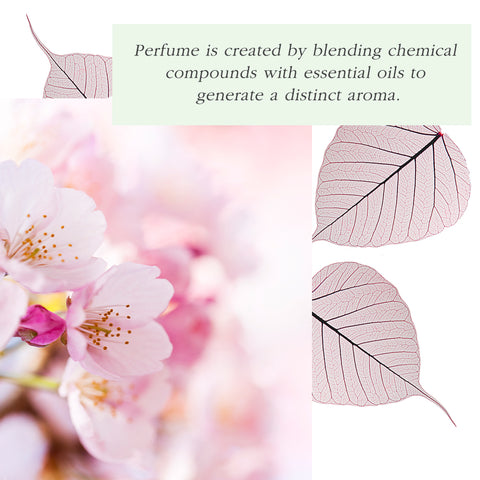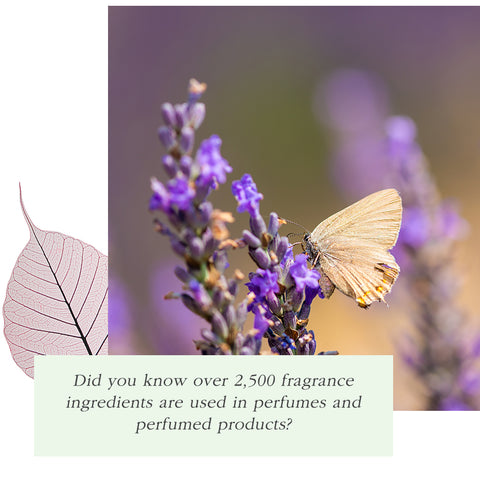If you have perfume allergies, we strongly recommend taking a look at our scent-free products which don't contain perfumes or essential oils, making them suitable for even the most sensitive skin.
Discover naturally scent-free beauty
If you are allergic to several perfumes or have very sensitive skin, going completely fragrance free may be the best solution.
Sensitive skin experts for over 20 years, Green People has produced a huge selection of scent-free products so that you can care for your skin safe in the knowledge that your skin won’t react.
Why is perfume added to skin care products?

Perfume is added to skin care products because it is designed to improve their scent and make them more appealing to consumers.
Of course, you only need to look at the popularity of the big perfume brands to see that the majority of people enjoy using pleasant fragrances. Scent is even used in some stores to improve customers’ brand experience.
Almost all skin care products, from body lotions and face creams to deodorants and shower gels, have perfume added to them.
It can sometimes be quite difficult to find personal care products on the high street which don't have an added scent.
Sometimes the perfume is added to give the product a nice scent whilst other times it is added as a ‘masking fragrance’ to cover up the smell of another ingredient.
Perfumes are also found in a huge array of other products such as washing powders, kitchen and bathroom cleaners, air fresheners, candles and tissues – to name just a few.
Unfortunately for people who have perfume allergies this means that many products are completely unsuitable.
What are the symptoms of a perfume allergy?
Are you one of the many people in the UK that suffer from an allergy to perfume? An allergy to perfume is a one of the most common skin allergies and it can define so much of what you can use on your body and in your home.
If you are allergic to perfume, you may react in a number of ways. Skin reactions are quite common, with rashes, redness, itching or dermatitis often appearing in the area of skin which came into contact with the perfume.
Contact dermatitis in the armpits is often a sign of a perfumed deodorant allergy and those who experience this should try switching to a fragrance-free deodorant.
"A perfume allergy can often cause a skin reaction like a rash, redness or itching."
Perfume allergies, just like any other allergy, can also affect you in other ways. You may experience watery eyes, shortness of breath, nausea or dizziness when you come into contact with some fragrances.
There are also a number of less common symptoms; visit your doctor if you are concerned.
Why do I have an allergic reaction to perfume?
When you see ‘perfume’ listed on the ingredients label of skin care products, it represents a combination of compounds which all make up the scent of the product.
It isn’t possible to tell what all of these compounds are if the term ‘perfume’ is used so it can be hard to narrow down what exactly you are allergic to.

Here are some of the most common perfume chemicals which cause allergic reactions:
- Cinnamyl alcohol
- Hexylcinnam- aldehyde
- Coumarin
- Isoeugenol
- Anisyl alcohol
- Amyl cinnamyl alcohol
- Hydroxy-citranellal
- Oak moss extract
If you have ever gone for perfume allergy testing, you would likely have undergone a patch test involving the above chemicals and another one of Balsam of Peru. This is where a sample of the fragrance is applied to a small area of skin and monitored to see if there is any reaction.
These two perfume patch tests detect around 75% of perfume allergies so may be able to help you find out for certain about your sensitivities.
Essential oils in perfumes
Synthetic chemicals are widely used in perfumes as they tend to be much cheaper than essential oils which offer a natural form of scent.
It is often these synthetic chemicals which set off an allergic reaction to perfume but essential oils can also cause reactions in some people.
Essential oils are used in many natural skin care products because of their remarkable effectiveness in both adding scent and having beneficial effects on the skin.
Unfortunately for those who have allergies to essential oils, this can restrict their use of even the most natural of products.
However, just because your skin reacts to some essential oils, it doesn’t mean that it will to all oils.
If you like you can undergo patch testing to identify exactly where your fragrance allergy lies. This way you can still enjoy the use of some natural skin care products with essential oils.
Our top-sellers for those with a perfume allergy
Has switching to perfume-free products helped you to care for your sensitive skin? Join the conversation at @GreenPeopleUK.
Our UK customer care team is happy to help you identify which of our natural skin care products might be suitable for your skin. Just call us on 01403 740350.
































